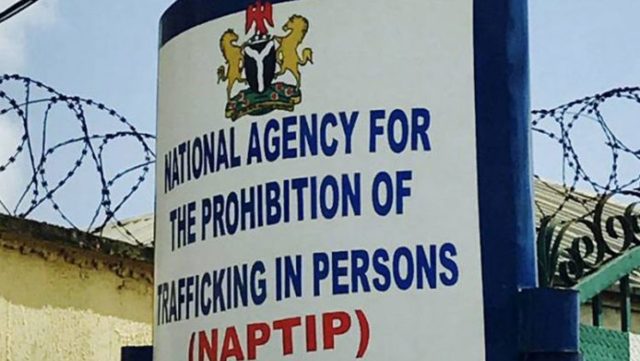The National Agency for the Prohibition of Trafficking in Persons (NAPTIP) has called on secondary school principals in Ogun State to play a more active role in identifying and preventing human trafficking among school-age children.
Speaking at a two-day training session in Abeokuta on Thursday, NAPTIP’s Director General, Binta Bello, said the agency is focusing on schools as a frontline in the fight against trafficking, particularly in states with high rates of reported cases.
Bello, represented by the agency’s Director of Research and Programme Development, Josiah Emerole, described Ogun as one of the endemic states where both internal and external trafficking remain prevalent.
“Human trafficking is a transnational organised crime and globally ranked second after drug trafficking. Most victims are children—many of them of school age,” she said. “Some of these victims are in your schools. You may not know, but after this training, you will be able to identify and support them.”
Fifty school principals, who also serve as coordinators of Anti-Trafficking Vanguard Clubs, participated in the workshop organised in partnership with the International Centre for Migration Policy Development (ICMPD).
The training is part of the School Anti-Trafficking Education and Advocacy Project (STEAP), which is funded by the Kingdom of the Netherlands.
Bello warned that trafficking has become a profitable criminal enterprise with an estimated global annual revenue of $150 billion.
She urged school heads to use their positions to promote awareness, lead early intervention efforts, and encourage students to speak up when signs of exploitation are noticed.
“There are many quarries in Ogun where trafficked children are made to work. Some of these cases involve movement from rural to urban areas. We call that internal trafficking, and it is just as serious,” Bello said. “We need you to be part of the effort to educate these children and your community.”
Project Manager for ICMPD’s STEAP initiative, Rhoda Dia-Johnson, noted that educators are crucial to combating trafficking and building protective school environments.
“As principals and coordinators of anti-trafficking clubs, you are not just educators; you are frontline defenders of children’s rights,” she said. “You must foster trust and create safe spaces where children feel supported and can report suspected abuse.”
The Ogun State Commissioner for Education, Science and Technology, Prof. Abayomi Arigbabu, reaffirmed the state’s support for the initiative. Represented by the Director of Education Support Service, Akinola Okereafor, Arigbabu disclosed that the state has begun implementing Safe School Child Protection Policies and a Psychosocial Support Framework to help address risks facing vulnerable students.
He added that schools must not only focus on academics but also function as protective spaces where abuse and exploitation are detected early.
“Schools are the first line of defence,” he said. “We must observe behavioural changes, and signs of abuse, and intervene where necessary.”
The training concluded with a call for continued collaboration between government agencies, school administrators, and civil society to tackle the root causes of trafficking and strengthen early-warning systems within the school system.







